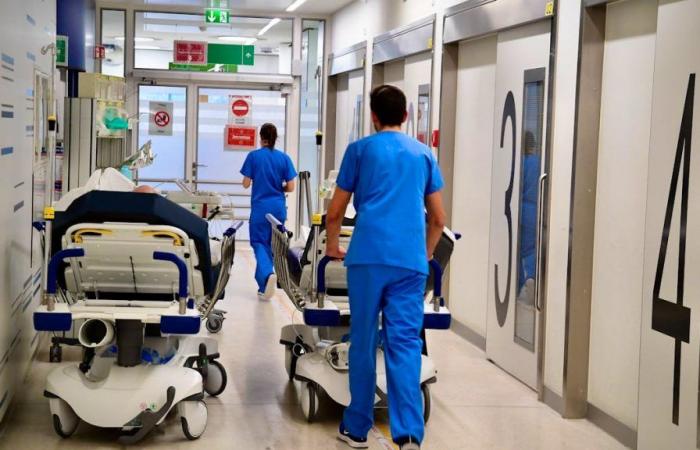Luxembourg hospitals, refuge for French, Belgians and Germans in need of a solution. During the summer, the hospital tension on the other side of the border, accentuated by departures on vacation, pushed many cross-border workers to fall back on establishments in Luxembourg.
A challenge for local staff, who find themselves faced with an influx of non-resident patients. The stakes are high given a dynamic that could continue in the months and years to come.
At the start of the week, the figures revealed in a parliamentary response to the ADR by Minister Martine Deprez make it possible to quantify, in part, the phenomenon. If 85% of people treated are residents of Luxembourg, the share of residents of neighboring countries has only increased in four years. And substantially.
In 2020, 9,110 French residents sought emergency treatment in Luxembourg. There were 15,639 in 2023, an increase of 71%. For Belgian residents, the number of people who crossed the border to go to the emergency room was 3,355 in 2020 and 5,387 last year. The increase is 60%. If there are fewer Germans who go to emergency rooms in Luxembourg (2,305 in 2020, 3,425 in 2023), growth exceeds 48%.
Apparently impressive figures, but they need to be qualified. The years 2020 and 2021 were marked by the Covid epidemic, which largely limited travel. Note also that the number of residents who go to the emergency room is also growing, a result of the increase in population. Another fundamental dimension of the challenge awaiting the health sector in Luxembourg.
Last year, just over half of the people admitted to the emergency room were of Luxembourg nationality. The increase also concerns hospitalizations: +40% for residents in France, +38% for Belgians and +25% for Germans. In 2023, almost 12% of people who spent at least one night in hospital in Luxembourg were not residents.
“The cases are diverse and varied. Patients arrive for more serious things. It is also a question of means. Cross-border workers know and see that the care is different,” an emergency doctor confided to The essentialscalling for this new situation to be taken into account by the authorities.






